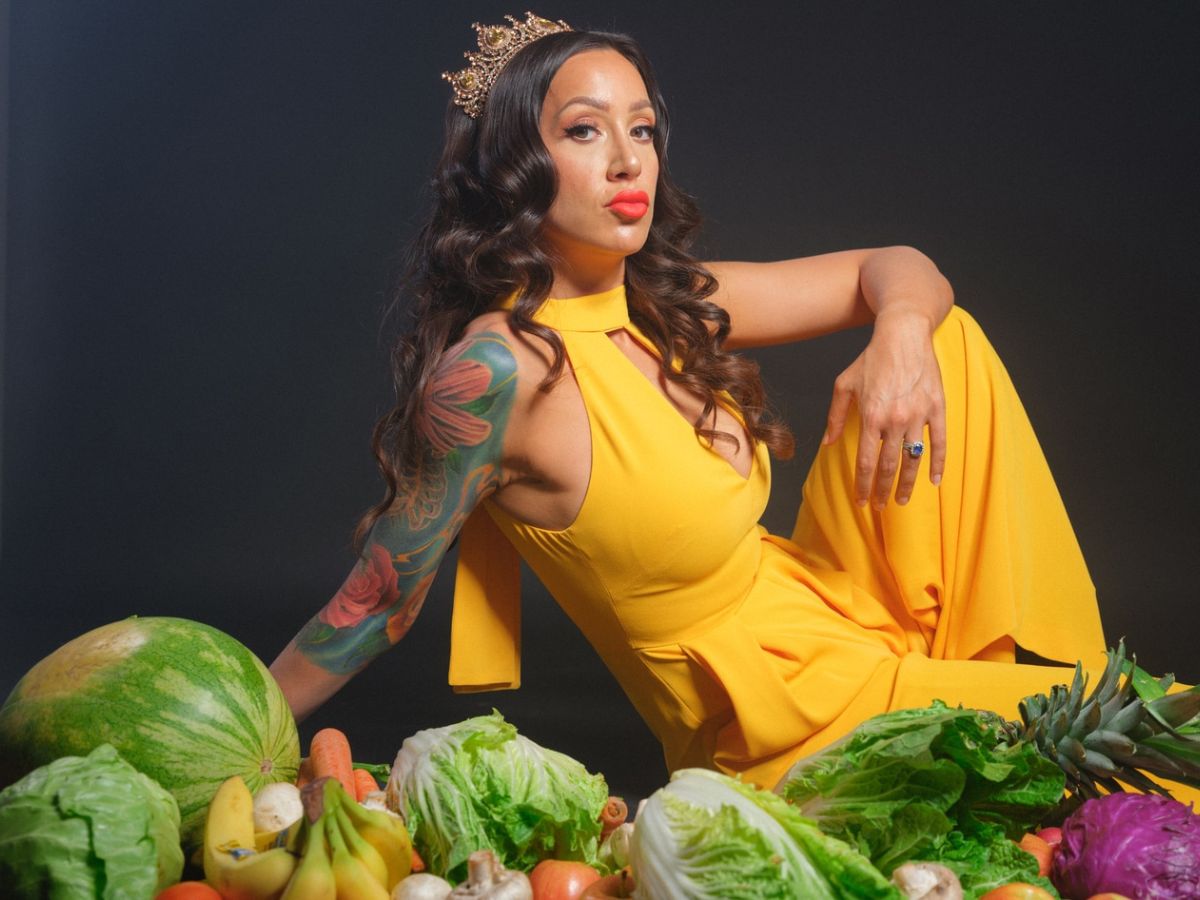On the eve of the next Vegan Women’s Summit, Jennifer Stojkovic talks Silicon Valley, climate action and brand-building

The most accurate way to describe Jennifer Stojkovic is “multi-hyphenate,” a one-stop-shop for the future of food. “Everything I do is regarding climate innovation, which includes content creation, writing, running an events platform and investing money in other startups,” she explains.
Stojkovic (Law and Business ‘13) is a food-tech thought leader, author of The Future of Food is Female (external link) and founder of the Vegan Women’s Summit (external link) (VWS), a global media and events organization that she likens to South by Southwest for the future of food. Founded in 2020, the 2023 VWS takes place May 18-20 with over a hundred planned speakers and activations.
“The goal is cultural staying power beyond supply chain and investor talks,” says Stojkovic. “We create a 360-degree experience for attendees to see what the future could look like for them since the status quo is non-sustainable.”
Stojkovic’s taken steps to broaden the summit’s reach, a decision she believes is necessary from the climate action standpoint “More than half of our attendees are not vegan – you don’t have to be vegan to buy into the vegan economy (external link) . It can be daunting, so without the binary of eating vegan or not vegan, it’s about breaking down consumer decisions, like buying cruelty-free beauty or not buying leather.”
For climate solutions to be scalable, consumers need to adopt them without significant barriers to entry. Stojkovic was inspired to create VWS because of her experience as the only woman in the room throughout her career and looking at solutions companies can deliver.
“93% of consumer food purchases are made by women, so from a bottom line perspective, gender diversity is key. It makes sense for the future of food to be a female-led industry,” she adds. “When companies want to become anti-fragile, we have to look at untapped opportunities.”
A culture of innovation
Before branching out with her brand, Stojkovic cut her teeth in Silicon Valley, where she worked at the intersection of technology, venture capital and lobbying. “I worked under Ron Conway and ran his lobbying associations to advocate for better tech regulations.”
“I could see firsthand what it means to believe in founders from the beginning. I learned there really is a culture of innovation in Silicon Valley – building companies in public for the world to see, failing over and over again.”
Stojkovic believes in conscious capitalism (external link) , that corporate social responsibility (CSR) doesn’t work if pushed onto existing business models. “It’s less effective than building companies that solve problems we have on the planet.”
There was no single point in her time working in the Valley that Stojkovic decided to marry her choice to be vegan with her professional endeavours. As the future of food gained traction, she began to think about harnessing her talents and dedicating her career to social impact.
Stojkovic is now General Partner at Joyful Ventures (external link, opens in new window) , an early stage climate fund focused on sustainable protein. “The biggest thing I learned is to support an entrepreneurial vision because the change in climate and food is not going to come from policy,” she explains. Currently, Joyful Ventures is raising pre-seed and seed funding to invest in transformative food solutions around the world, with a focus on U.S. and Canadian enterprises.
A San Francisco breakup story
“Silicon Valley is effective because it backs people from the earliest moments of their ideas. Cities around the world are trying to capture that,” explains Stojkovic. “Every city has its own community, like cryptocurrency in Miami.”
Geographic flexibility is an asset to the future of the food movement, and it’s led her to rethink the relationship with the Bay area. (external link) “We need to have technical talent, but also food and supply chain resources. It can be anywhere, not concentrated to a region,” noting how Joyful Funds recently invested in New School Foods (external link) , a startup making plant-based seafood alternatives currently housed at the Science Discovery Zone as part of the Toronto Metropolitan University’s Zone network.
“When new industries are popping up, like the future of food, there are opportunities for new cities,” she says, pointing to Singapore as an investor in protein alternatives.
Foundations built at the Ted Rogers School of Management
Years into a journey that’s seen her reinvent herself and build a brand, Stojkovic recognizes the foundation she created as a Law and Business student at the Ted Rogers School of Management.
“I was a teaching assistant for several years for Dr. Sean Wise, who taught me the Opportunity Valuation course,” she adds. “It was my first experience with venture capital and the most formative experience I had at TRSM.”
Negotiation courses offered skills that she’s taken with her throughout her career, even if she decided against law school and ended up working as a lobbyist.
As for her advice to students, Stojkovic says that “Every milestone you achieve, those are steps to building a personal brand. I started networking early. Everything you do in public is part of your brand.”